The Mississippi Association of Gang Investigators, a nonprofit association of law enforcement officers and prosecutors, has this logo on their website. MAGI is pushing lawmakers to pass the expanded gang legislation this session. Photo courtesy msmagi.com
Four 16-year-olds are standing on a street corner in Richland, Miss., all wearing identical hoodies. One of them has a little more than 30 grams of marijuana on him. A police officer stops the young men, believing they are a gang because they're dressed alike, and finds the pot.
Under normal circumstances, the young man with the pot would face a possible three-year sentence under state law.
But the officer is not done. He takes all of them to jail, charging each with gang activity because they are dressed alike and have similar tattoos. That means each of them can go to prison for both the pot charge, plus an additional sentence of five to 15 years, if prosecutors can convince a jury they are part of a Mississippi gang.
The gang may not exactly be the Black Gangster Disciples, the Vice Lords or the Simon City Royals, the state's three biggest criminal street gangs. Maybe the four young men met at school, and they all needed money so they decided to sell pot. Maybe they've never lifted a finger against anyone else. Maybe it's their first pot sale.
Maybe their families do not or cannot do enough to keep them off the corner. Maybe one or both parents are already in prison for a drug charge and cannot provide for them. Maybe they or their parents, or both, are addicted to a substance. Maybe the boys call themselves something like "Rankin $$ Boyz 39073" for fun and bravado. Maybe they are future doctors, lawyers and legislators if they don't end up in prison for years because they were stupid enough to wear matching sweatshirts and not stay away from weed.
Either way, Mississippi law enforcement may soon be able to decide the boys are a gang even if they're not part of a larger criminal enterprise with a hierarchy and criminal connections beyond whomever they got the pot from. Under Mississippi's proposed gang-law expansion, Senate Bill 2868, police and prosecutors would have the flexibility to call them a "gang" and a decent shot of proving it in a court of law, and then require that the judge order consecutive sentencing. That could be another five, 10, 15 years for each of the boys on top of the three years for the pot charge.
The bill allows a judge to suspend a mandatory or enhanced punishment and impose alternative punishment "only in an unusual case where the interests of justice would be best served," and only if the judge enters the specific reasons into the court minutes.
Mississippi Sen. Derrick Simmons, a Democratic black lawmaker from Greenville, used a variation of that hypothetical on the Senate floor last week to challenge the gang bill and Sen. Brice Wiggins, its biggest cheerleader in the Legislature. Wiggins is a Republican from Pascagoula and a former prosecutor who has been pushing for an expanded gang law in recent years. He saw a similar law, which he added into a amendment to another bill, fail last session.
After Simmons presented the four-guys-in-a-hoodie scenario—without placing them in Rankin County, though—Simmons looked at Wiggins and asked, "You understand my concern?"
Wiggins equivocated in response. "Again, only if the elements are there, and it's proven for criminal gang activity. ... If it's just drugs, I would hope they wouldn't be charged if there's no probable cause for criminal gang activity," Wiggins said. "... I know what you're asking, but I don't think it works that way, to be quite honest."
"But there's nothing in the bill that would prohibit or stop law enforcement or a prosecutor from charging them," Simmons pointed out to Wiggins.
"No, but that's why they hire people like you or excellent criminal defense attorneys to get that addressed in a court of law," Wiggins responded, raising eyebrows among those present who know that not all young people on a street corner can afford the same defense attorneys that legislators might hire should they get in trouble.
The Discretion Conundrum
The ongoing problem of "discretion" and how much to give law enforcement and prosecutors is an age-old criminal-justice dilemma. On the one hand, discretion can allow a police officer not to arrest someone she does not believe is a hardened criminal. On the other, it can enable law enforcement to act on either implicit or explicit biases to punish certain young people—say those of a particular race—the officers do not like.
In today's America, it's not a secret that not all police officers are ethical—see the new corruption conviction of the Baltimore, Md., officers for planting evidence or the cops in Los Angeles who helped white supremacists, neither of which Mississippi has ever been immune to. It is also undeniable that the people caught up in bad policing are often powerless young men of color who are assumed to be criminals and who probably cannot afford those great attorneys Wiggins recommends.
The same bias could flow from black officers toward the white Simon City Royals, of course, but the Senate debate, and a previous one over the House's version of the gang bill, revealed that black lawmakers were far more likely to voice concerns about what overly broad police discretion can result in than even the white Democrats in the same room.
Sen. John Horhn, a black Jackson Democrat who pushed the Legislature to fund a $500,000 Botec Analysis study on crime in the capital city (which few other legislators seem to have read) challenged Wiggins' definition of what comprises a criminal group. He asked him if his bill would extend to corporate executives involved in a scandal similar to the WorldCom or Enron scams, and if they could qualify as a gang under the bill. Wiggins responded that he did not think so.
"Why not?" Horhn asked.
"Because that's not what the bill is aimed at. It's aiming at the criminals and the gangs that are in our communities," Wiggins said, skating past the fact that the WorldCom hustlers were right here in the Jackson metro, ripping off people they knew. "... We're talking about gangs. We could sit here and hypothetical all day long." He then added that a black House member had "said how bad the gangs were, so we're trying to solve an issue."
"It's not a Republican, Democrat(ic), black or white (issue)," Wiggins added.
Black legislators weren't buying it. "You mentioned the issue of people being preyed upon," Horhn said to Wiggins. "And in a lot of communities, not the Enron strata of communities but down to the poor, less powerful aspects of our communities, it's a matter of self-protection to join a gang. In the course of trying to survive their community, where there may be a gang presence, are we going to penalize those folks forced into gangs as a matter of self-protection?"
With that question, Horhn was drawing upon current criminal-justice research that shows that many young people of color actually carry weapons to protect themselves, just like many older white men, probably including legislators, in the state.
The "self-protection" question drew another virtual shrug from Wiggins, however. "No, I'm not concerned about that because this bill ..., if it becomes law, is aimed at those who are bringing youth into, and as I said, preying on our youth to join these gangs. No," he answered.
Except that the bill redefines "gang" as "an association of three or more persons whose members are involved in criminal gang activity"—who could be standing on the Richland corner selling that pot—"and who collectively identify themselves by adopting a group identity." That can be done in myriad ways: with a common name, slogan, sign, symbol, tattoo or other physical marking; style or color of clothing or hairstyle; a hand sign or gesture, or a finger position; or graffiti. The bill specifically exempts a sports team, a legal business or charity unless it was created as a "pretext for criminal gang activity," rather than becoming a criminal conspiracy like happened at Enron and WorldCom.
The logic is circular: Prosecutors could then use the expanded definition to widen the net to catch more gang members and then be able to charge more of them with criminal gang activity. So if one of the hoodie guys on the Richland corner commit a crime that is deemed "criminal gang activity," then all of them are automatically considered to be gang members if one of the shared elements is in place.
The bill does target coercing or encouraging another to commit a felony, but it also includes committing various other crimes, indicating that the bill is not only about "preying on our youth."
But Wiggins fell back to assuring the lawmakers that Mississippi police would not possibly apply the law unfairly .
"Profiling is wrong," he said. "The law enforcement I know don't do that. You always have a bad person here or there, and the law takes care of that, and I can assure you the folks I talked to about this bill, that is not what they want to do."
Ron Noblet, a lead investigator on the Legislature-funded 2016 BOTEC analysis study of Jackson gangs and crime, read the bill last week, as did his attorneys, and agreed with the black legislators that it gives police far too much discretion to make bad decisions. "It is either consciously or unconsciously written in a way that's extraordinarily broad," he said in a phone interview.
"We see it as just another pitiful way to keep people of color in prison, and to not deal with the fundamental problems that cause gangs in the first place," he added.
The gang bill, Noblet said, just focuses on more arrests rather than evidence-based solutions that can lower violence.
Document
Capitol City Crime Prevention Study: School Discipline and Youth Violence Reduction in Jackson
"If I say you're a gangster and that you're talking to gangsters, then you're a gangster. ... It is the standard way that law enforcement will try to deal with a problem that cannot be dealt with with force," said Noblet, who trains law enforcement around the country in effective gang intervention and consults with the Urban Peace Institute in Los Angeles, Calif.
Effective gang intervention is also not about cops playing warrior, or law enforcement being the only ones trying to stop violence. "Police should be there, part of the table. They should never be everyone at the table," Noblet warned.
'The Risk of Profiling'
The organization that is lobbying for SB 2868 and gathering evidence to support it has an intriguing logo—one that looks more like gang insignia than that of a collection of law enforcement, prosecutors and court officials from around the state. When you click to the website of the Mississippi Association of Gang Investigators, called MAGI for short, you see a crudely drawn combat-green box with a white skull dripping with either paint or blood on top of two crossed AR-15-type rifles.
The site makes it clear that the goal of MAGI is to apprehend gang members and send them away to prison, preferably for a long time. Founded in 2008, the nonprofit association welcomes people associated with the criminal system "whose interest or primary investigative responsibilities include the identification and prosecution of crimes related to gang activity."
At its Nov. 5-8, 2017, state conference at the Golden Nugget in Biloxi—theme "Never Backing Down"—MAGI gave out questionnaires to 71 law-enforcement agencies around the state about what gangs and how many members they're identifying in their jurisdictions. The roster seems to be loosely defined to include any possible criminal group with a gang-esque name, no matter how large or small—from the Chicago-born Black Gangster Disciples to what they called "neighborhood cliques."
MAGI gave those responses to the federal Department of Homeland Security "fusion center" in Pearl, which published a Mississippi gang assessment in December. Now, SB 2868's backers are using that report to support the bill.
The report indicates that the Gangsters, the Vice Lords and the Simon City Royals—all gang brands that originated in Chicago decades ago—are the most prevalent gangs in the state and the ones involved in the most criminal activity, both inside and outside correctional facilities.
"The formation of hybrid gangs and neighborhood cliques has been the most notable trend," the assessment said. "These non-traditional gangs welcome merging of members from established gangs in order to unite over a specific territory."
It also recommended MAGI's "more inclusive gang bill ... to address the growing violent and organized gang activity." The report also makes it clear that the bill goes far beyond gangs recruiting youth.
"The draft bill creates the crime of criminal gang activity and addresses the problems associated with juvenile recruitment, youth gang members, the organized 'money men,' gang tactics and allows the use of a statewide Grand Jury." The grand jury is likely a way to prosecute alleged gang members outside jurisdictions that would likely be more skeptical, such as majority-black areas like Jackson or Greenville.
"(The new gang law) would further mandate statutory minimums for criminal gang activity and require the penalty for the crime to run consecutive to the underlying felony," the fusion center's assessment stated. That can mean long terms in prisons—with tough prison gangs—for anyone "associated" with a group that MAGI members decide to call a gang.
Sen. Barbara Blackmon, D-Canton, asked Wiggins on the Senate floor to tell her more about MAGI and his meetings with them. He said he went to one of their trainings on the Coast.
"Was it a diverse group?" Blackmon asked.
"Diverse in agencies?" Wiggins asked.
"No, diverse in hue."
"Hue? As in color? ... Yeah, as far as I can recall: white, black, everybody under the sun."
MAGI does have racial diversity in its ranks. And the gang assessment makes it clear that a white gang, the Simon City Royals, is one of the state's top challenges, especially on the Coast now. The organization even told The Clarion-Ledger that the most verified gang members in the state are now white.
Those facts do not negate the risk that such a broad law is still enforced harsher against people of color in neighborhoods considered crime-infested than it could be against white gang suspects, several violence experts told the Jackson Free Press.
"Using a white gang as the reason for harsh and expansive anti-gang policies is undoubtedly a way to neutralize claims related to racial bias and profiling," criminal law professor Babe Howell of the CUNY School of Law, who specializes in gang and youth-crime enforcement, said last week.
The risk of profiling is still serious, Howell added: "Law enforcement tend to see criminal and group crime in any peer group of black and brown kids." Howell, who read the proposed Senate gang bill and the now-dead House version, as well as the fusion gang assessment, pointed out that the target of the coordinated effort is "not just gangs, but cliques and crews."
"(The bills) open individuals who grow up in crime-ridden areas to prosecution and incarceration based on the conduct of others," Howell said. "The bills create 'gang' offenses where the actions of others are relevant to prove that there is a gang and that the gang is engaged in criminal activity. The criminal trial becomes a circus in which an individual can easily be prosecuted based on association."
Noblet laughed out loud at the idea that the new gang law would not be used to racially profile because it targets a large white street gang, too.
"I laugh. It has nothing to do with reality of what happens," he said.
Brad Rowe, who was the CEO of BOTEC Analysis when it studied Jackson's crime and now runs RPM Policy and Media, agreed in an interview from Los Angeles. "That's equal opportunity suppression. ... (Law enforcement) can use the color of law to take down white kids as well," he said. But that does not mean they will not use it to profile people of color, he warned. It can be an overly broad and harsh law for a wide variety of people and still be worse for targets of color.
Targeting Violence
Regardless of race, though, language in the gang bill means someone might get additional sentencing for a crime just because they are associated with a gang or crew on MAGI's list—even if the crime itself was not related to gang activity. In the 2017 session, Sen. Wiggins even used high-profile murders of Jessica Chambers and Mercedes Williamson allegedly by men who were in gangs to argue for the bill, even though prosecutors in both cases say the murders were not gang-ordered or sanctioned.
The narrative of MAGI members is that someone who is in a gang and commits a crime, even if it is not related, is committing a "gang crime"—which essentially criminalizes being in a gang. The Clarion-Ledger reported in August 2017 that MAGI embraces the most broad—and confusing—definition possible. "But a gang crime, according to the Mississippi Association of Gang Members, is defined as any crime in which the victim or perpetrator is a member of a gang. It can be gang-related, in which there's just someone who is affiliated, or gang-motivated, in which the crime is ordered or caused by gang activity," the Ledger reporter stated.
SB 2868 language is not even that broad, but it is disturbing enough, law professor Howell said. "The bills designate conduct which is largely already criminal—committing felonies, intimidating witnesses, obstructing justice—as 'criminal gang activity.' ... The bills then enhance sentences and facilitate accessorial liability based on association. They tack on five to 15 years consecutive not for the criminal conduct itself but because of association. They prohibit association with any member of a gang post-release," Howell said.
"Because the bills criminalize already criminal behavior, they would be symbolic but for the costly sentence enhancements. ... Gang arrests and allegations create situations in which it is impossible to get a fair trial, and the innocent will be swept up with the guilty, and the kitchen sink of all bad conduct is admissible as evidence."
The Mississippi Legislature's attempt to focus prosecution on gang membership over the criminal acts themselves is "15 years behind" the times, Noblet said. He pointed to attempts to push such laws in cities such as Los Angeles that have now turned to different approaches. "Violence is not a gang problem, which is why we're not anti-gang. We are anti-violence," he said.
That shift in criminal-justice approach to both gangs and violence is widespread today, in no small part because only a small percentage of gang and crew members actually commit the violent crime.
"Ninety percent of the time they can be changed, or changed to allies," Noblet said. "Ten percent of the time, they need to have asses locked up or killed. If the other 90 percent are wasting away in jail, they're not there to help families, and they give up and sit on corners doing nothing. It's a waste of human potential."
That is consistent across the country, crime experts say. Many young people join gangs to belong to something, or because they are growing up in miserable situations, often raised (or not raised) by parents caught in generational poverty, addiction or crime themselves. They want a "family."
Need for Counter-Intelligence
Sociologist and crime expert Andrew V. Papachristos, now of Northwestern University in Chicago and previously with Yale, authored a research report analyzing Chicago's version of "Operation Ceasefire," a "focused deterrence" strategy that the BOTEC report also recommended because it incorporates outreach and services for identified gang and crew members. It also specifically targets violence over gang membership, at least when done according to plan.
Mississippi's SB 2868 makes no mention of crime prevention beyond policing, and the fusion gang assessment only asks two questions related to prevention at the very end that still focus on gang membership: "What prevention programs are in elementary and/or middle schools to offset the recruitment of youths into gangs?" and "What methods do mental health facilities have in place for monitoring the gang presence in their facilities?"
In a 2015 report published by the American Society of Criminology, Papachristos along with David S. Kirk of Oxford University discussed the importance of focusing enforcement on the violence itself and who specifically is committing it.
"The underlying principle is to reach those factions that are involved in shootings, rather than simply reaching out to gang members writ large," they wrote.
"Unlike general deterrence, which aims to dissuade the general population from engaging in particular criminal behaviors by increasing the severity, certainty and swiftness of punishments associated with said crime, focused deterrence posits that crime reduction is best achieved by concentrating deterrence efforts on those groups or individuals involved directly in the targeted type of crime," the report stated.
"Rather than enact broad-sweeping policies that indiscriminately apply across populations and places, focused deterrence efforts honor traditional deterrence principles while leveraging existing policies and practices in innovative ways directly toward small offending populations."
The report emphasizes that those violent offenders are a very small percentage of the people identifying in some way with a gang, crew or other group, so the emphasis on gang membership can be a waste of time and resources.
Such gang enforcement can also increase crime and violence, studies show. A major reason, Noblet said, is that rounding up suspects who are merely associated with a gang but not involved in crime creates massive distrust among the very people police need to help them with intelligence gathering. He using military strategy to train cops and critique SB 2868: The proposed gang bill is more of an "anti-terrorism" approach, he said. "You go in and go after the assholes." Innocent people may be caught up, but at least you found the bomb.
Street violence, though, requires more sophisticated counter-intelligence, he said, which "targets good guys to protect."
"One of the basic ways to protect them is to start treating the good guys as human. ... It takes a long time to develop trust. You get the good population to separate themselves to separate themselves from embedded bad guys." Then it's easier to spot the shooters, and the good ones might help you find them. "That's targeted suppression," he said.
Focusing on the violence itself has a better chance of working, the experts say, especially since young people have formed and hung out with gangs throughout history with many of the early gangs, whether Italians and Irish fighting in New York City in the 1800s or the Gangsters, Latin Kings and Simon City Royals starting up decades ago in Chicago to rumble over racial turf. Today, though, most gang violence is intra-gang, Papachristos and Kirk say—meaning over beefs, rules or women rather than the inter-gang turf wars of old.
Communities must come together in a systemic way that goes far beyond policing to target the violence, such as that embraced by the Urban Peace Institute and recommended in the BOTEC report on Jackson gangs, Noblet said. That means intervention, prevention, targeted policing and re-entry all at once. "When you approach it that way, you start dealing with the real causes of violence," Noblet said. "It starts in the womb: poor education, too many drugs, lack of good transportation, lack of a way to afford clothes and food."
To reverse those violent cycles—and perhaps the desire to join a gang in the first place—Noblet emphasized that police should be at the table, but not at the head of it. He prefers to see a municipal authority take the lead, bringing nonprofit groups, ex-gang members and people willing to work with them, as well as law enforcement, to the table to plan a long-term strategy to reverse violence. "There's nothing wrong with police as police," he said. "They are trained to take charge. Civilians are trained to back off when police are present."
In addition, Noblet said, "good and effective policing requires a series of questions and answers based upon understanding human nature and understanding the facts. Threats and fear are counter-productive 90 percent of the time."
Costs of Suppression
The backers of SB 2868—and media friendly to their approach—seem to spend more time trying to convince the public that "gangs are a problem!" in Mississippi rather than focusing on the causes and potential solutions that go far beyond—or come before—gang enforcement. Noblet started his interview saying that communities need to accept that they have gangs; he is not even fond of dividing them into groups, crews and cliques. And he is cynical about why people deny that their communities have gangs: "People are afraid tourists won't visit and spend money," he said.
The bottom line is that gangs of some kind are in every community and county in Mississippi—whether street gang, white supremacist or a neighborhood group harassing other kids. A small proportion of their members can be violent, especially ones who have been through hell and have no strong role models or hope for the future.
But criminalizing being in the gang itself will not stop that violence, Noblet and other experts emphasize, nor is it likely to deter the ones most likely to commit violence. "There is nothing that law enforcement can do to them that has not already been done to them by their relatives," Noblet said of the young people prone to committing the worst crimes.
Not to mention, sending them to prison can turn them into worse criminals as the BOTEC analysis reports pointed out. And the younger they are when they're arrested, the more likely they will commit worse crime as an adult. The other top precursor for committing adult crime is dropping out of school.
The populations of most prisons, including in Mississippi, are organized into gangs—for protection. Many gang members are "blessed in"—or "beat in"—in prison, and come out far worse criminals. This is why smart re-entry preparation needs to be in place for those leaving prison. Many former gangsters say they came out of prison and had nothing to do on the streets—no job, no transportation—and returned to crime as a result. And many experienced violence inside prison and then bring the habit, and the trauma, back home.
Still, "most of the time, re-entry is ignored," Noblet said.
The Mississippi Legislature has grappled with legislation that would increase re-entry options and resources in the state, but it stalled last session. And the backers of the gang bill are so focused on sending gangsters to prison for longer periods that they talk little about what happens when they come back to their communities.
Ironically, both the harsh gang enforcement and the lack of re-entry may prevent one of the top ways to reduce both gang activity and violence in communities, Babe Howell of CUNY Law said.
"Harsh penalties and gang suppression have strengthened gangs because it disrupts the normal process of maturing out of gangs and moving on to work and family," she said. "Chicago and California have long histories of gang suppression and MS-13 crackdowns; these experiences suggest that gang suppression by law enforcement is not a means of eliminating or even weakening gangs."
Howell suggests setting up systems of "violence interrupters"—former criminals and gang members who want to help young people choose better options than they did, as happens in an organized way now in many American cities.
"Cure Violence models that focus on working with at-risk kids using credible messengers (often former gang members or convicts who have lost years of their lives and loved ones to violence) seem to have robust impact without reliance on expensive incarceration which merely delays problems rather than resolving them," she said.
The JFP's 'Preventing Violence' Series
A full archive of the JFP's "Preventing Violence" series, supported by grants from the Solutions Journalism Network. Photo of Zeakyy Harrington by Imani Khayyam.
"The bills being proposed in Mississippi would prevent former gang members from doing violence-interruption work or returning to communities and working with at-risk youth," Howell said.
She added that the gang bill can also be costly if lawmakers do not take into account the cost of imprisoning many more people based on guilt by association.
"I don't see a budget analysis, but the cost to taxpayers is likely to be great," Howell warned about the proposed gang bill.
"An individual might sell drugs or be involved in an assault that is related to their group affiliation, and the sentence for the assault might be two years, but a gang enhancement could elevate it by five to 15 years." Then taxpayers foot the bill.
Costs of Suppression
Lawmakers in both the Mississippi House and Senate asked about a fiscal note for the legislation due to presumed extra costs for the Department of Corrections to incarcerate more convicted gang members.
In 2014, the Legislature passed a massive criminal-justice reform measure, House Bill 585, which was supposed to save the state money and decrease the number of men and women in custody.
The plan worked in the first year after HB 585 became law, with the number of inmates dropping by 11 percent. In the second year, however, the prison population began to climb again.
In 2013, MDOC had nearly 23,000 men and women behind bars, but hit a low point around summer 2015, with about 17,000 inmates. Since then, that number has edged up again.
Currently, there are 18,946 inmates in custody in Mississippi; with inmates in community corrections and other programs, that number is up to 20,738.
Another 32,796 Mississippians are on probation or parole. Black inmates make up 62 percent of the total number of offenders, while white inmates make up only 36 percent of the total population. More than 40 percent of men and women are behind bars in Mississippi are incarcerated for drug or property crimes.
Sen. Wiggins, though, does not believe his gang bill will increase costs.
"It's more about intensity than volume, and as you know, I've been a staunch defender of the criminal justice reform that this body and this Legislature passed... So, no, I don't think it will negligibly affect that," Wiggins said.
Simmons asked Wiggins to join him to request a fiscal note on the bill, citing reforms lawmakers passed previously that ended up "stacking the population" instead of lowering costs. At press time, no fiscal note was attached to Senate Bill 2868.
Additional reporting by Arielle Dreher. Read more at jfp.ms/preventingviolence.
More stories by this author
- EDITOR'S NOTE: 19 Years of Love, Hope, Miss S, Dr. S and Never, Ever Giving Up
- EDITOR'S NOTE: Systemic Racism Created Jackson’s Violence; More Policing Cannot Stop It
- Rest in Peace, Ronni Mott: Your Journalism Saved Lives. This I Know.
- EDITOR'S NOTE: Rest Well, Gov. Winter. We Will Keep Your Fire Burning.
- EDITOR'S NOTE: Truth and Journalism on the Front Lines of COVID-19

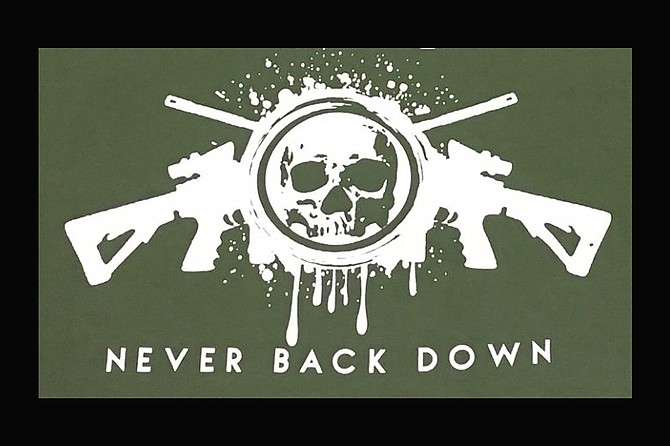
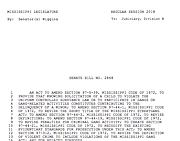
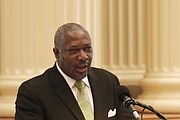
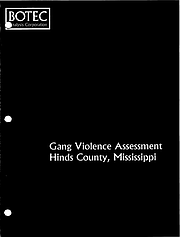
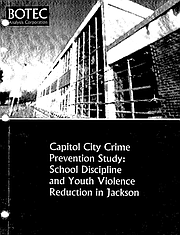
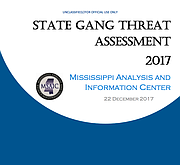
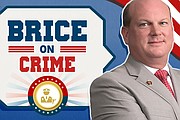
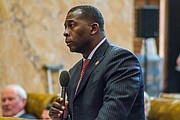


Comments
Use the comment form below to begin a discussion about this content.
comments powered by Disqus